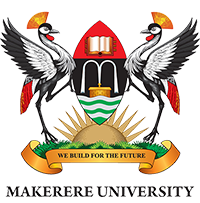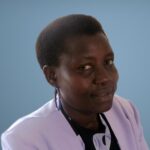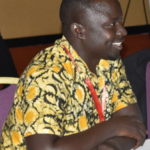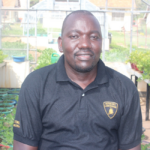Gender-Responsive Crop Breeding Course
The fifth GREAT course, Gender-responsive Crop Breeding, took place online in March 2021.
GREAT courses are designed to make it easier for researchers to incorporate gender into their projects. We demystify gender, and provide social and biophysical scientists the theory, knowledge, tools and analytical approaches they need to bring gender into their research programs in a more grounded, realistic manner.
With this course, we gave greater training to social scientists. GREAT’s focus on mixed methods research puts more emphasis on the role of social scientists, and we’re building on this by redesigning our course to give three additional days of training, just for social scientists. This in-depth, methodological instruction enables them to better design, execute, analyze and write up their field data.
THE GREAT APPROACH
GREAT’s unique approach to gender training allows researchers of different backgrounds to work fluidly together, to design, carry out and deliver research projects as integrated teams. This enables more effective project management and development of more inclusive and effective technologies, which leads to better adoption and enhanced outcomes for farmers, value chain actors and consumers – including women, men and children.
Theory and Knowledge
GREAT courses are grounded in applied gender theory. Participants learn how to use this knowledge to frame their research appropriately, and put it to work for the communities they serve.
Research Tools
GREAT courses cover mixed methods research, helping researchers select, design and use tools in a holistic, integrated fashion, that will help them learn the needs, desires and constraints of different value chain actors
Analysis and Implementation
GREAT courses cover quantitative and qualitative data analysis methods, helping research teams unpack key themes and learnings from their field work, and translate these into research that delivers more equitable and effective results.
Whole Cycle Approach
GREAT courses examine gender through each step of the research cycle, from start to finish, helping researchers both better compete for grant funding, and seamlessly integrate gender into their research, from proposal to publication.
Interdisciplinarity
GREAT doesn’t aim to turn biophysical scientists into gender experts, or social scientists into crop breeders. Instead, it equips social and biophysical scientists with the skills and perspective to work better together towards common goals.
COURSE PARTICIPANTS
Benin: Participatory Cowpea Breeding in Benin
The project objective is to improve livelihoods of smallholder farmers through selection of improved cowpea varieties resistant to aphid and striga in Benin. The expected outputs are the selection of at least five resistant improved cowpea varieties to aphid and striga; at least two most adaptable and stable cowpea varieties in Beninese conditions are selected among the germplasm.
Project/Donor: Participatory evaluation of cowpea varieties for productivity, nutritional quality and adaptations to major biotic and abiotic constraints in Benin / Islamic Development Bank Participatory Cowpea Breeding in Benin Project
Côte d’Ivoire: Productivity bean breeding in Côte d’Ivoire
The project is in line with the main thrust of agricultural development, i.e., the diversification of agricultural production through the promotion of the common bean. Expected results include: high-yielding bean varieties of good nutritional quality are offered to producers; the bean production, marketing and consumption value chain is established; and promotion of gender across the corridors is effective.
Project/Donor: West and Central Africa Bean Research Network (WECABREN) / The Pan-Africa Bean Research Alliance (PABRA)
Eswatini: Cowpea mutation breeding for drought tolerance in Eswatini
Project/Donor: International Atomic Energy Agency (IAEA)
Ghana: Aflatoxin resistant maize breeding for Ghana
The primary objective of this project is to develop high yielding aflatoxin resistant maize hybrids for improved nutrition and health in Ghana. It is expected that at least one high yielding aflatoxin resistant maize variety(ies) will be identified which will be registered and released for cultivation and use by Ghanaian maize farmers and consumers in general.
Project/Donor: Breeding aflatoxin (A. flavus) resistant maize for improved nutrition and health in Ghana / The United States Agency for International Development (USAID), National Academy of Sciences
Ghana: CSIR-CRI Bean Team
The project objectives are to develop high yielding bean varieties and facilitate access and consumption of these higher iron beans through seed production and exchange among member countries.
Project/Donor: West and Central African Bean Research Network / Pan African Bean Research Alliance (PABRA)
Kenya: TELA Maize Breeding for Kenya
The TELA Maize Project is a public-private partnership that is working towards initiating commercialization of transgenic, drought-tolerant and insect-protected maize varieties to enhance food security in SubSaharan Africa. The TELA Maize Project is a publicprivate partnership that is working towards initiating commercialization of transgenic drought-tolerant and insect-protected maize varieties.
Project/Donor: TELA Maize Project, Stress Tolerant Maize for Africa (STMA) / The Bill & Melinda Gates Foundation (BMGF), The United States Agency for International Development (USAID), The Howard G. Buffett Foundation, The Government of Kenya
Malawi: Dry Beans for Bruchid Resistance Malawi
The Genetic Improvement of Dry Beans for Bruchid Resistance for Southern Africa Project objective is to develop and release weevil-resistant common bean varieties with good agronomic performance in seed market classes preferred in Malawi, Mozambique and Zambia. The project expects to develop highly nutritious and weevil resistant common bean varieties for food, nutrition and income security.
Project/Donor: Genetic Improvement of Dry Beans for Bruchid Resistance for Southern Africa / United States Agency for International Development (USAID)
Mali: IER Potatoes Mali
The objective of this research is to contribute to improving the food security and income of Mali farmers through the cultivation of high yielding potato varieties. Expected outputs/outcomes include: existing potato varieties in Mali are identified; women and men farmers are trained in good potato production, processing, and preservation techniques; and women and men perceptions on both potato.
Project/Donor: Scaling up small-scale irrigation technologies for improving food security in Sub-Saharan Africa / The OPEC Fund for International Development (OFID) and The International Center of Bio-saline Agricultural (ICBA)
Mozambique: Bruchid bean Mozambique
The Genetic Improvement of Dry Beans for Bruchid Resistance for Southern Africa Project objective is to develop and release weevil-resistant common bean varieties with good agronomic performance in seed market classes preferred in Malawi, Mozambique and Zambia. The project expects to develop highly nutritious and weevil resistant common bean for food, nutrition and income security
Project/Donor: Genetic Improvement of Dry Beans for Bruchid Resistance for Southern Africa / United States Agency for International Development (USAID)
Mozambique / Uganda: Resilient sweetpotato breeding for Africa
The project objective is to improve breeding operations and methodologies as well as ensuring integration between breeding outputs and early generation seed availability by 2022. The expected outcomes are improved access to improved varieties, enhanced seed delivery systems through streamlined gender responsive, and well managed sweetpotato breeding programs in Africa.
Project/Donor: Sweetpotato Genetic Advances and Innovative Seed Systems (SweetGAINS) / The Bill & Melinda Gates Foundation (BMGF)
Niger: Breeding for improved sesame cultivars in Niger
This project aims to improve the incomes of rural households and contribute to food security by developing and promoting improved sesame varieties that meet the demand for farmers, consumers and producers in Niger. Expected outputs/outcomes include: farmers’ preferred sesame cultivars traits are identified; improved sesame varieties are available; and capacity building of the research team enhanced.
Project/Donor: Sesame improvement for shattering resistance in semi-arid conditions of Niger / The International Atomic Energy Agency (IAEA)
Nigeria: Pearl Millet Bio-fortification of Existing Millet Cultivars in Northeastern Nigeria in Addressing the Nutritional Problems of Vitamin A Deficiency in Women and Children
This project intends to carry out the fortification of pearl millet and disseminate to farmers to improve nutrition of poor resource farm families. Germplasm of 110 dauro pearl millet with yellow endosperm that were collected by LCRI across Northern Nigeria in 2011 will be used for this purpose. The evaluation and selection of the varieties will be conducted together with farmers (men and women), seed companies, retailers and all actors involved in the value chain to promote the acceptance and adoption of these new varieties.
Project/Donor: Accelerated Varietal Improvement and seed Delivery of Legumes and Cereals in Africa (AVISA) / The Bill & Melinda Gates Foundation (BMGF)
Nigeria: Tropical Soy Bean TGx Nigeria
The primary objective of the study is to transfer new improved soybean seeds to the rural farming households in the study area for adoption for planting. It has been recorded that this new breed grows faster and yields more bean seeds when properly managed. Therefore the adoption of this new soybean will increase their production which in turn will translate to increased income.
Project/Donor: Tropical Soybean TGx / Federal University of Agriculture Abeokuta, Nigeria
Togo: Late Leaf Spot (LLS) resistant groundnut breeding in Togo
The project aims to improve groundnut production through: the identification of farmers preferences; and the evaluation of and release of groundnut promising lines. The expected outputs are: farmers’ production constraints and varietal preferences known; released varieties are widely adopted in most groundnut producing area; and, groundnut production increase in Togo.
Project/Donor: Enhancing the genetic potential of peanut production in West Africa / The United States Agency for International Development (USAID)
Uganda: Arapai training program
The objective of this training project is to enable us attain knowledge and skills for developing gender responsive tools that we can use in research and training. This knowledge and skills will help us to understand the dynamism involved in communities we serve and as such develop technologies that meet the needs of stakeholders thus reducing costs incurred by farmers to adopt new technologies.
Project/Donor: Busitema University, Uganda
Uganda: Iron-rich mungbean breeding for East Africa
The project’s main objective is to reduce the malnutrition burden among smallholder farming communities in the drought prone areas of East Africa. The specific objectives are to: characterize current mungbean production systems and prevailing constraints; evaluate advanced mungbean lines for iron content and other nutrients; strengthen mungbean seed production and delivery systems, and develop and promote efficient processing and utilization methods.
Project/Donor: Development and deployment of iron dense mungbean genotypes for nutrition security in the drought prone areas of East Africa (Mung4- Fe) / African Union Commission
Uganda: Community seed banking in Uganda – Beans and millet
The project’s primary objective is to improve adaptation to climate change and enhance food and nutrition security to resource-poor farmers in Uganda. Expected outputs are new varieties generated from the Multilateral System (MLS) and national gene banks, materials tested and disseminated, and Community Seed Banks (CSB), with supporting local seed network established.
Project/Donor: Promoting open source seed systems for beans, forage legumes, millet and sorghum for climate change adaptation in Kenya, Tanzania and Uganda / Benefitsharing fund of the International Treaty on Plant Genetic Resources for Food and Agriculture
Uganda: Stress-Resilient Cowpea for Uganda
Using the genomic tools to accelerate the development dual purpose cowpea varieties with multiple stress tolerance for improved food and nutritional severity. In Uganda, cowpea is cultivated for seed, vegetable and forage by small holder farmers who are mostly women. The traits of focus include high yield, leaf traits, scab disease, drought and heat tolerance.
Project/Donor: The Eastern and Southern Africa Higher Education Centers of Excellence Project (ACE II) / The World Bank and the Government of Uganda
Zambia: Bean Improvement Zambia
Project/Donor: Improving Bean Production and Marketing in Africa / Global Affairs Canada (GAC)
Zimbabwe: TAAT Wheat Zimbabwe
The TAAT programme aims to enhance national wheat production. It employs the valuechain approach to achieve a widespread transformative impact in terms of productivity and farmer capacity, farmers’ income, seed systems, climate resilience, job creation, value addition, participation of poor men, women, youths and the disabled; all leading towards attaining higher levels of wheat self-sufficiency
Project/Donor: Technologies for African Agriculture Transformation (TAAT) Zimbabwe Wheat Compact / African Development Bank (AfDB)
Zimbabwe: Small grain breeding and promotion Zimbabwe (ZAKIS)
The ZAKIS project has a mandate of strengthening collaboration of three departments: research, extension and education. Small grain breeding and promotion is one initiative adopted to disseminate research findings in a collaborative manner at identified centers of excellence in Zimbabwe. Expected outputs include increased production and productivity of small grains for sustainable food security.
Project/Donor: Zimbabwe Agricultural Knowledge and Innovation Systems (ZAKIS) / The European Union
DESIGNED BY


COURSE TRAINERS
GREAT’s training team draws from diverse experts with deep experience in areas including plant breeding, gender theory, community development, sociology, communications, monitoring and evaluation, participatory research, rural development, and more

Josephine Ahikire

Amon Mwiine Ashaba

Elizabeth Asiimwe

Grace Bantebya Kyomuhendo

Jenipher Bisikwa

Brenda Boonabaana

Ogara Collin

Rosemary Isoto

Devon Jenkins

Enid Katungi

Godfrey Kayobyo

Christine Leuenberger

Lawrence Lubyayi

Margaret Mangheni

Richard Miiro

Peace Musiimenta

Tabitha Nafula

Losira Nasirumbi-Sanya

Maria Nassuna-Musoke

Tonny Obua

Kalule David Okello

Margaret Smith

Hale Ann Tufan






